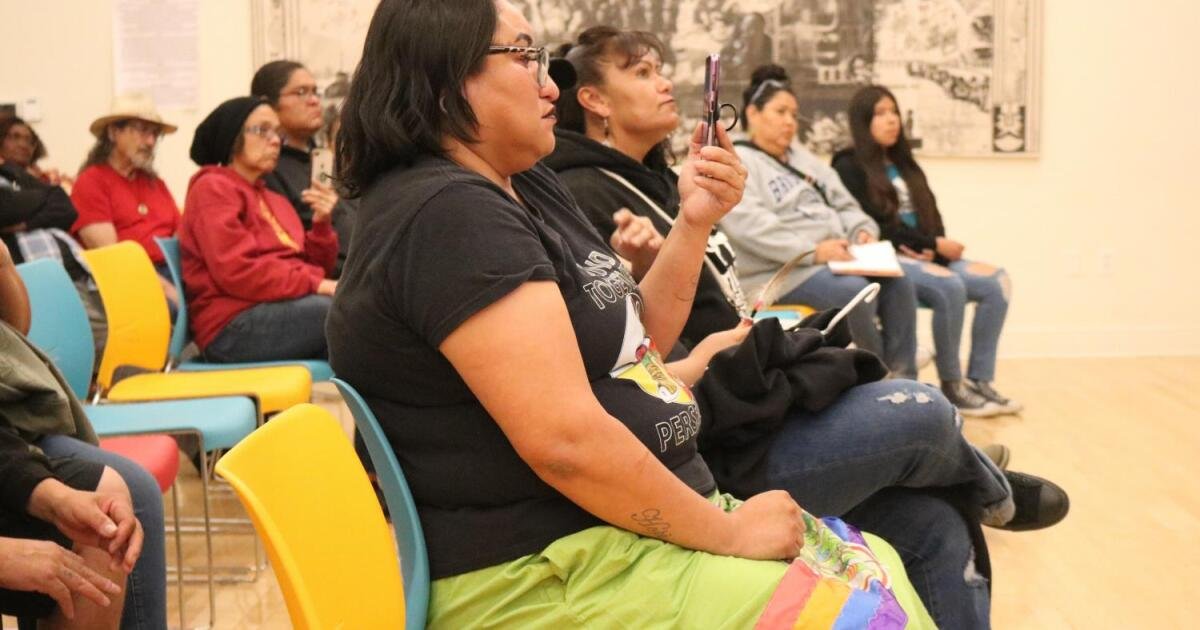Arizona is asking a Maricopa County Superior Court judge to dismiss a class-action lawsuit filed against the state on behalf of 7,000 alleged victims of Medicaid fraud.
Starting in 2019, a loophole in the state’s Medicaid agency – known as AHCCCS – allowed bad actors to defraud the state out of an estimated $2.8 billion.
Perpetrators primarily targeted Native Americans and, through the American Indian Health Program, charged AHCCCS for addiction treatment services that were never actually provided.
Victims were held in fake sober living homes across the state, mainly in Maricopa County. Some claim they were given drugs, starved, forbidden from leaving and assaulted. The plaintiffs estimate 2,000 people died.
The plaintiffs allege the state engaged in gross negligence by letting that happen for years. Meanwhile, the state is asking Judge John Blanchard to throw the case out without a trial.
Arizona Attorney General Kris Mayes and Go. Katie Hobbs first announced the fraud scheme to the public and their plans to crack down on it early in 2023.
Since then, the state has passed new laws to mitigate Medicaid fraud and AHCCCS has implemented new policies.
The Attorney General’s Office has also prosecuted dozens of bad actors. Some investigations took place under former Gov. Doug Ducey’s administration, but they’ve continued under Hobbs’ and Mayes’ leadership.
The plaintiff’s argument
For the plaintiffs, attorney Dane Wood told the judge that AHCCCS had a duty obligating the agency to protect the individuals who were harmed in fraudulent sober living homes that made billions of dollars in taxpayer money.
“This scheme required people and money, and AHCCCS knew this since 2019,” Wood said in oral arguments on Tuesday. “This is not about money; this is not about anti-fraud. … This is about people being harmed, which is exactly what happened here.”
Wood cited AHCCCS’ own Fee-For-Service Provider Billing Manual, which states: “AHCCCS will terminate participation in the program by providing 24 hours written notice when: It is determined that the health or welfare of a member is endangered, that the provider fails to comply with federal and state laws and regulations.”
Wood said Medicaid doesn’t just give out free money — it must be attached to regulations.
“Week after week they [AHCCCS] were providing millions of dollars. … Attached to that money is oversight,’ he said.
And the actions AHCCCS and the state have taken in the last two years to mitigate Medicaid fraud are not enough to absolve the state of liability, Wood said. He noted that the problem is still ongoing.
“They could have and should have addressed this all the way back in 2019,” he said.
Wood declined to comment to KJZZ after the oral argument.
The state’s argument
Attorney Andy Gaona argued that Arizona shouldn’t be liable for the harm perpetuated by criminals who defrauded AHCCCS.
“The criminal conduct of providers who defrauded AHCCCS and harmed many of our State’s most vulnerable people is an undeniable human tragedy,” the state wrote in its motion for dismissal. “But that tragedy does not entitle Plaintiffs to set aside more than a hundred years of legal precedent and impose potentially limitless liability on the State, which did not perpetrate the criminal or tortious conduct that harmed Plaintiffs.”
Gaona said that just because AHCCCS provides a benefit to the public, that doesn’t mean it has a duty to the harmed individuals, and he argued that although AHCCCS has the discretion to terminate providers who are causing harm, the state is not required to.
Gaona highlighted the changes AHCCCS has made since the fraud started as a reasonable response.
Gaona also argued that several of the plaintiffs are too late to file suit because they’re time barred.
Gaona said no other case has ever gone forward with the liability framework the plaintiffs are trying to establish here and accused the plaintiffs of performing mental gymnastics to attach a real degree of responsibility to the state.
Gaona declined to comment to KJZZ after the oral argument.


